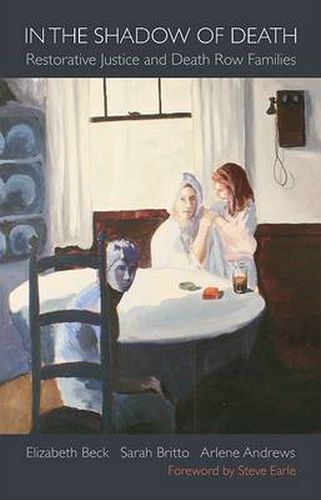Readings Newsletter
Become a Readings Member to make your shopping experience even easier.
Sign in or sign up for free!
You’re not far away from qualifying for FREE standard shipping within Australia
You’ve qualified for FREE standard shipping within Australia
The cart is loading…






The press called Martin’s actions a crime spree. Terrified that his son would be sentenced to die, Martin’s father Phillip committed suicide; ironically, the jury, moved by this desperate act, spared Martin’s life. Phillip’s story, like those of the other parents, siblings, children, and cousins chronicled here, vividly illustrates the precarious position occupied by capital offenders’ families. Living in the shadow of death, they are crushed by trauma, grief, and helplessness. In this penetrating account of guilt and innocence, shame and triumph, devastating loss and ultimate redemption, their voices add a new dimension to the debate about capital punishment.
These narratives are woven together by restorative justice theory, which holds offenders accountable while searching for ways to mend the communities and lives torn apart by their crimes and integrating offenders’ families into the process of promoting justice and healing. What emerges from myriad in-depth interviews with offenders’ and victims’ families, legal teams, and leaders in the abolition and restorative justice movements is a vision of justice rooted in the social fabric of communities, showing that forgiveness and recovery are possible even after terrible crimes. While holding victims’ stories sacred, this eye-opening book bridges the pain of living in the shadow of death with the possibility of a reparative form of justice. Anyone working with victims, offenders, and their families - from lawyers and social workers to mediators and activists - will find it indispensable to their efforts.
$9.00 standard shipping within Australia
FREE standard shipping within Australia for orders over $100.00
Express & International shipping calculated at checkout
The press called Martin’s actions a crime spree. Terrified that his son would be sentenced to die, Martin’s father Phillip committed suicide; ironically, the jury, moved by this desperate act, spared Martin’s life. Phillip’s story, like those of the other parents, siblings, children, and cousins chronicled here, vividly illustrates the precarious position occupied by capital offenders’ families. Living in the shadow of death, they are crushed by trauma, grief, and helplessness. In this penetrating account of guilt and innocence, shame and triumph, devastating loss and ultimate redemption, their voices add a new dimension to the debate about capital punishment.
These narratives are woven together by restorative justice theory, which holds offenders accountable while searching for ways to mend the communities and lives torn apart by their crimes and integrating offenders’ families into the process of promoting justice and healing. What emerges from myriad in-depth interviews with offenders’ and victims’ families, legal teams, and leaders in the abolition and restorative justice movements is a vision of justice rooted in the social fabric of communities, showing that forgiveness and recovery are possible even after terrible crimes. While holding victims’ stories sacred, this eye-opening book bridges the pain of living in the shadow of death with the possibility of a reparative form of justice. Anyone working with victims, offenders, and their families - from lawyers and social workers to mediators and activists - will find it indispensable to their efforts.